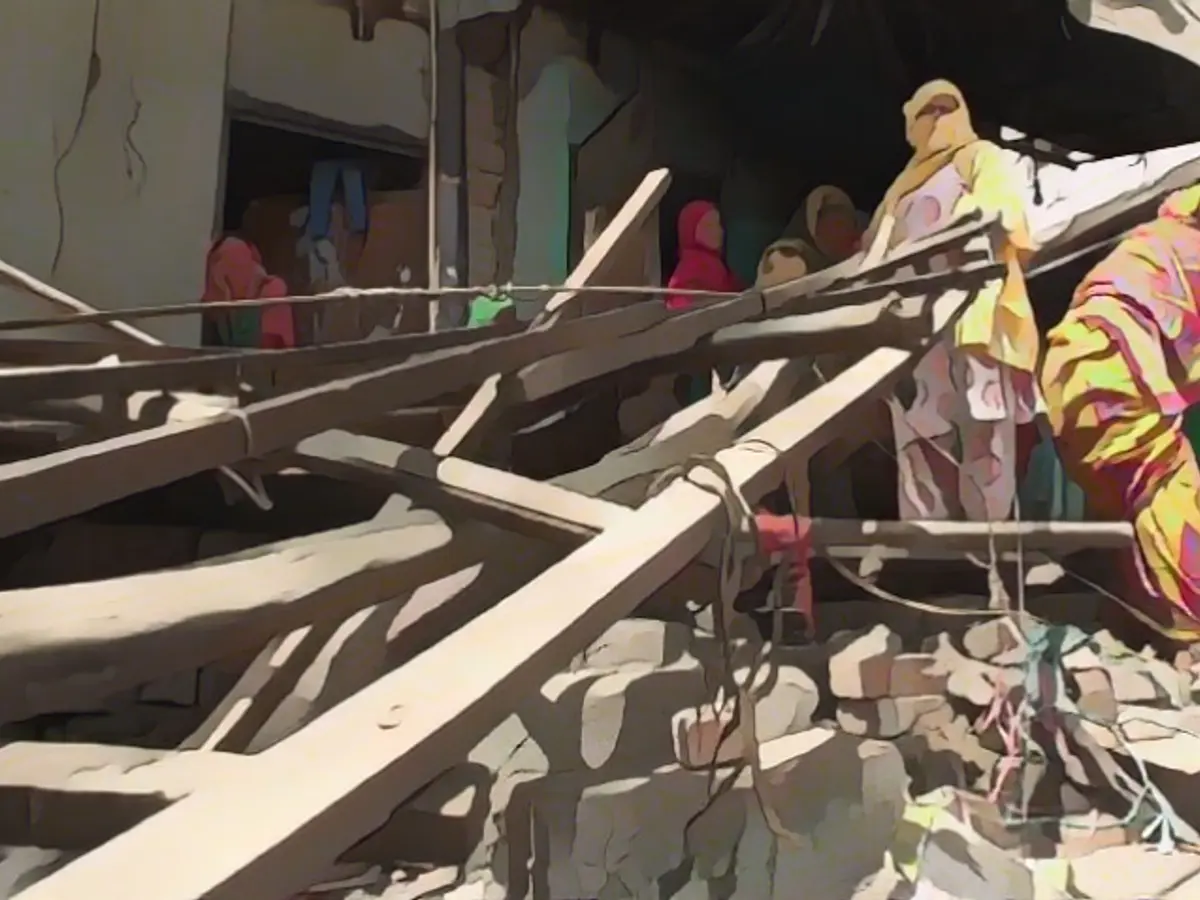In today's largest democracy, appearances can prove deadly, especially if you look "Muslim."
Co-author Abbas, a Muslim man from India, has personally experienced this harsh reality under Prime Minister Narendra Modi's regime. Muslims have been viciously slandered, evicted from their homes, and their right to freedom of religious expression has been suppressed.
Abbas, who has faced this prejudice firsthand, chose to ditch his traditional Kurta, a long shirt with a wide collar, that could indicate his Muslim identity, while traveling in public. The fear of mob lynchings – a common occurrence in India's past – was ever-present.
While public places in India do not prohibit the wearing of religious attire, Muslim women who wear the Hijab can face backlash and discrimination. Even Abbas was careful not to mention attending the Jamia Millia Islamia, a Muslim university associated with student-led protests against the government, which resulted in periodic campus closures due to its strained relationship with the ruling government.
An intrusive Citizenship Amendment Act (CAA) introduced by the ruling Hindi-nationalist BJP party in 2019 aimed at granting Indian citizenship to non-Muslim immigrants, provoking widespread protests based on its discriminatory nature.
Modi himself implied that those who protested the act were easy to identify, hinting at Muslim protesters. Indigenous Muslims – more than 14% of India's population – are now defending their right to exist.
Recent news has emerged of local authorities demolishing businesses and homes in the impoverished, predominantly Muslim neighborhood of Jahangirpuri in Delhi following communal clashes between Hindus and Muslims in the area. Authorities use such demolitions as a response to violence in other parts of the country, revealing a worrying trend in India.
Before 2014, Muslims accounted for 14% of the population but made up nearly 20% of India's prisoners. The Muslim population's significance is diminishing as authorities neglect their duty to protect constitutional rights for minorities.
Outcries for violence against Muslims have grown more frequent, with one member of a Hindu-nationalist youth group advocating for beheading those who wear turbans and forbidding their display in schools.
In December last year, a Hindu leader urged Hindus to "take up arms" at an event in the northern state of Uttarakhand to ensure no Muslim would become Prime Minister in 2029.
Yet, world leaders have turned a blind eye to the situation in India. Modi's government has faced no sanctions or widespread condemnation. International media coverage of the issue has been limited, often pushed aside to cover other news, such as the Ukraine conflict.
Some international milestones might signify progress. During his recent trip to Gujarat, UK Prime Minister Boris Johnson visited a JCB factory and posed for photos on a Bulldozer, a brand known for destroying Muslim businesses and homes.
This move raised unrest in India and the UK, with opposition members even questioning whether Johnson's visit would bolster the legitimacy of Modi's "right-wing" government.
Anti-Muslim rhetoric has infiltrated all aspects of Indian society. Cities are renamed to erase traces of Muslim history, while Muslims in urban areas face ghettoization as a result of structural prejudice.
Although beef and meat bans discrimination against underprivileged groups, including Muslims, beef exports continue with little consequence.
Muslims in India are detained, arrested, and imprisoned for years without trial under 'counter-terrorism' laws. For many, their Muslim identity is the sole reason for their unjust detention. Fear of reprisal from the authorities has created uncertainty among young Muslims, who live in constant fear.
Don't miss our free weekly newsletter
- Sign up for our new Opinion newsletter.
- Follow us on Twitter and Facebook
Muslims who openly identify themselves in India may be facing severe danger.(Text confirms that Muslim individuals in India may be at risk when they openly identify themselves.)
Some individuals even take actions against the religious freedom of Muslims in India.(Text implies that certain individuals engage in activities to curtail the religious freedom of Muslims in India.)
Source:
Enrichment data
The current state of religious freedom for Muslims in India is severely restricted and fraught with discrimination and persecution. Here's a summary:
- Harassment under anti-conversion laws: India has enacted anti-conversion laws in 12 of its 28 states, severely restricting religious freedom and has been used by BJP-led governments to harass religious minorities, particularly Christians and Muslims. These laws have been criticized for rampant abuse and using vague and overly broad definitions to outlaw nearly all minority religious activities.
- Citizenship Amendment Act (CAA): The CAA 2019 raises concerns over discrimination against Muslims by making religion a basis for citizenship, sparking fears that millions of Indian Muslims could lose their citizenship rights and disenfranchisement.
- Freedom of Religion Act: Legislation known as the Freedom of Religion Act, or anti-conversion laws, are in effect in 10 states and have been used to harass religious minorities, especially Christians from Dalit and Adivasi communities. The laws stoke vigilante violence.
- Punitive demolitions: Punitive demolitions, used to punish Muslims accused of violating zoning or building rules, have been condemned by the Supreme Court of India.
- Restrictions on non-profit organizations: The Indian authorities persistently impose restrictions on non-profit organizations on vague grounds and eventually revoke their licence to receive foreign donations under the FCRA while arresting human rights defenders, journalists, students, and academics.
- Internet shutdowns: India has documented the largest number of internet shutdowns worldwide, often implemented to suppress protests or criticism of the government, which disproportionately impacts marginalized communities.
- Seizure of Islamic literature: In Kashmir, police have raided bookshops and seized hundreds of copies of books by Islamic scholar Abul Ala Maududi, alarming Muslim leaders, as part of a broader crackdown on dissent and intellectual freedom.







